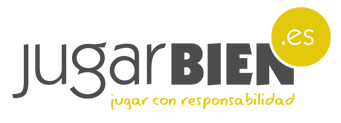The first edition of the "RegTech egambling international workshop" organized by the General Directorate for the Regulation of Gambling took place in Madrid, yesterday June 17th?2019.? Over two hundred people representing gambling regulators, members of the Advisory Board for Responsible Gambling, operators, companies, lawyers and associations, among other groups, attended to this workshop.
The event began with a speech of Jose Antonio García, Head of the Unit of Institutional Relations and Management, where he stressed the importance of technology as a present instrument to use in the solution of some of the problems that may arise from gambling.
The first group of presentations addressed the different technological solutions related to identity verification and digital onboarding processes. As an introduction, Guillermo Olagüe, Head of the Unit of Regulation of gambling, mentioned some of the actions developed for this purpose by the DGOJ (such as the?resolution of modification of identity verification processes or the implementation of upcoming anti-identity theft service in the game or "antiphising alert"). Eduardo Azanza (Veridas / BBVA) and Javier del Corral (Buguroo) showed some of the potential of the technology in the verification processes, either in the phase of registration as in the entire life cycle of the client. Among other issues, it demonstrated that this technology has a high degree of maturity and its effectiveness is equal to or even greater than the processes of face-to-face verification. It is useful to detect situations of identity spoofing and thus avoiding many of situations that have their reflection or in the prevention of illicit or in the protection of vulnerable sectors.
The second block of lectures, moderated by the Head of Unit of Inspection of Gambling, Cecilia Pastor, faced from a technological perspective, the phenomenon of fraud and its different solutions, some of them already raised in the?Technical Note on the management of fraud?in operators of the DGOJ published at the end of 2018.? Among other issues, Samuel Jiménez (BBVA) and Jaime Sánchez (Telefónica), presented, respectively, the existing risks in any type of economic transaction and the different technological tools used at the time of securing these movements, as well as the challenge of geolocation in web environments. On this matter, Sánchez exposed some Ips hiding techniques and the mechanisms available for its detection and thus, avoid the access of users from not authorized jurisdictions. Likewise, it was exposed how the issues related to the integrity and regulatory compliance to avoid fraud must be addressed in an integral way within the organizations, so that the approaches and technical solutions complement and come to support business decisions.
Finally, Susana Campuzano, Deputy Head of Unit for institutional relations and management conducted the last part of the workshop, with keynotes dealing with artificial intelligence, big data and machine learning in responsible gambling policies. She highlighted that some of these issues were already included in the?Royal Decree of Commercial Communications and Responsible Gambling, particularly the need for operators to develop mechanisms and protocols to detect user risk behaviors. In addition, some others will be collected in an upcoming?technical note on responsible gambling, project incardinated in the Responsible Gambling Work Program and in which the DGOJ will show the mechanisms and control systems to implement the gambling platforms to contribute to a better management of the risks derived from the practice of online gambling.
The presentations developed by Simo Dragicevic (BetBuddy) and Svend Aage Kirk (Mindway) showed how, through tools already available in the field of artificial intelligence and neuroscience applied to gambling, it is possible to combine the use of gambling behavior data with the protection of gamblers and the fight against the appearance of addictive behaviors.
Finally, Juan Espinosa, General Director for the Regulation of Gambling, closed the workshop highlighting the importance of technology in the present of gambling sector, and specifically in guaranteeing its sustainability. For this, he pointed out the need of identifying challenges and problems to be solved, recognizing the legitimate social concern in relation with gambling. He also stressed that despite of possible worries that may arise from the activity of gambling and betting, "regardless of the evolution of the data, public policies should mark a clear path towards eliminating the negative effects of gambling." He highlighted both the growing relevance of the use of technology and its essential incorporation in the business development of companies, so "given that the cost of applying technological solutions to meet the challenges of the sector drastically decreases, the seriousness of compliance with the regulatory requirements do it in a proportional way and, therefore, it is the moment, not only to have a regulation that meets the legitimate aspirations of citizens, but the sector itself to accompany and lead this process".? Finally, he emphasized the role of “RegTech egambling international workshop" as a vehicle through which the industry transfers the technological state of art to possible solutions, demonstrating that its practical application is feasible.
From the DGOJ we thank the speakers and in general to all attendees their presence in this forum.
Temas relacionados:
If you want look for any news, you can use the News Searcher

















